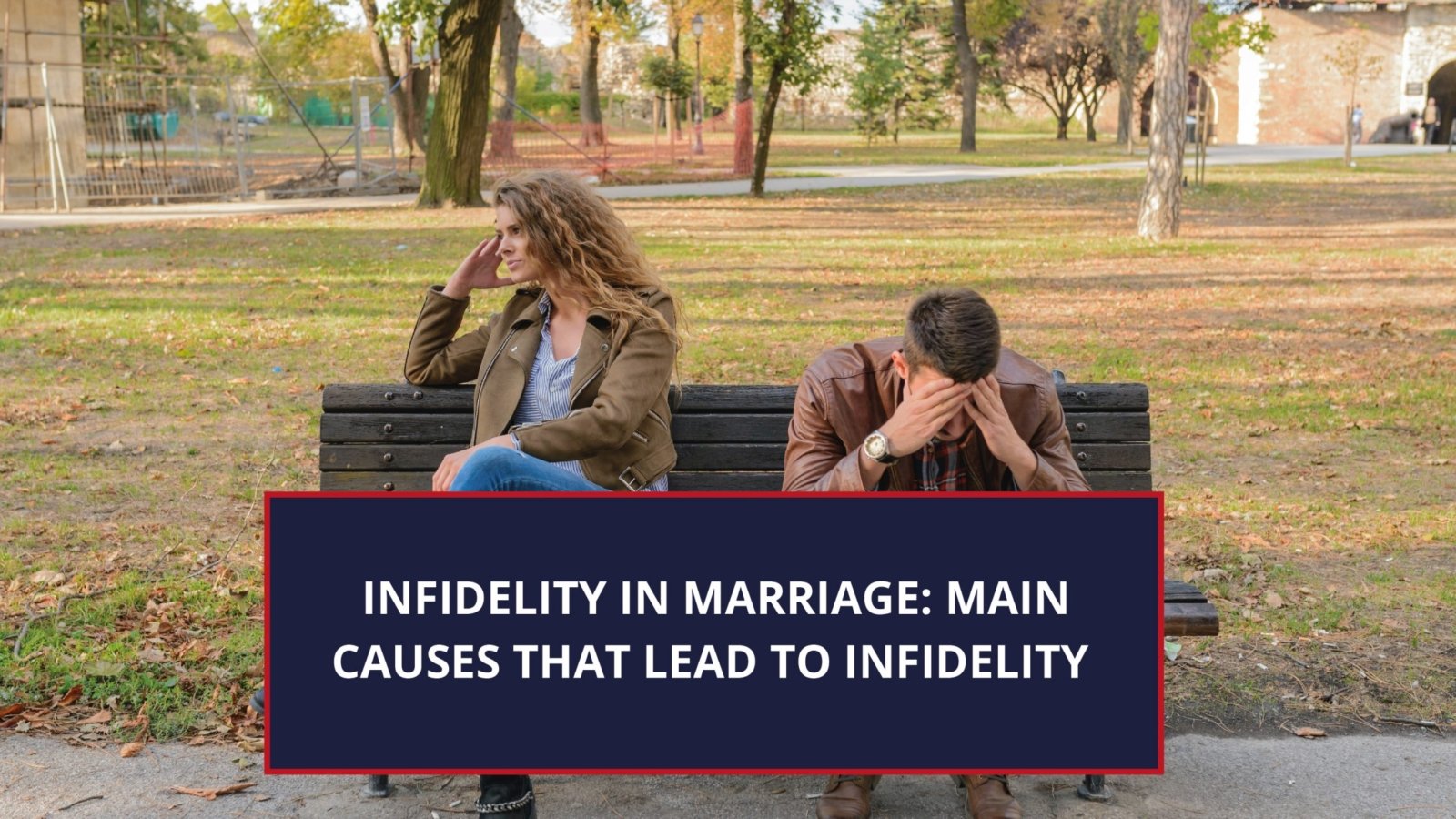Infidelity is one of the most difficult situations a couple can face. And, if not addressed in a healthy way, it can be an irreparable situation for the relationship. Now, what does infidelity imply? and why does it happen?
Everyone may have their own beliefs about this topic. However, I want to share with you the most common causes why infidelity takes place in relationships.
What does infidelity involve and why does it happen?
Generally, the affectionate and/or sentimental union of one of the spouses with a third party has been considered infidelity in marriage. And, in this experience there may or may not be sexual involvement.
For infidelity, there are many possible implications and causes. Well, each individual has his/her own concept of loyalty, fidelity and expectations of a relationship.
So, based on these beliefs, a person can normalize and justify certain actions because he does not consider them infidelity. Each relationship is unique and there are different “motivations” behind an infidelity.
Causes of infidelity
Below, I share the causes commonly expressed by couples and that I have addressed in therapy:
Dissatisfaction with yourself or your partner
Dissatisfaction directs people to want “more” and to look outside for what they don’t get within their relationship. What you are looking for outside can be physical or emotional pleasure motivated by a need for attention, recognition, companionship, different experiences, among others.
Social pressure
Infidelity in marriage sometimes arises as a desire to be fashionable or to accept the incessant invitation of close people. Even when attracted to media advertising and social events that, currently, normalize deception and infidelity.
Desire for revenge
It occurs when the one who has been deceived or hurt in some way decides to take revenge or hurt the spouse by being unfaithful. This is one of the reasons very few mentioned, but it is practiced very often in both men and women.
Feeling of personal insecurity
It can occur if the person does not feel good about himself and is perceived as unattractive, less intelligent, among others. Infidelity serves as a form of personal reaffirmation and generates the satisfaction of being able to conquer someone else.
Pattern of emotional instability
This situation moves people who have experienced childhood traumas, abuse, suffer from a mental health disorder such as anxiety, depression, addictions, among others. In these cases, infidelity is used as an escape route to their emotional situation.
Confusion
Many times, spouses often feel confused, especially after several years of relationship. They feel that “the flame went out” and the desire for their partner decreased. This is a natural process of relationships that is confused with the decay of love and can end in infidelity.
Conviction
Some people do not believe in monogamous relationships, so having a partner does not limit them to having encounters or relationships with third parties.
The root cause of infidelity
What’s behind personal dissatisfaction, a desire for reaffirmation, personal insecurity, confusion, and the other common causes of infidelity? These causes have a root or foundation.
Selfishness
Infidelity reveals the selfishness present in a person’s heart. Unfaithful partners often take into account only their pleasure or need ignoring the pleasure or well-being of their partner.
For example; “I feel dissatisfied, he/she doesn’t fulfill my needs, I need to feel safe, I want something new, I think it’s not so bad.” Each of these expressions satisfies the “I” and justifies infidelity.
The worst part is that, often society feeds these ideas and encourages this kind of “self-love”. In fact, it has been easier to promote “open relationships” than a commitment to address dissatisfaction by improving other aspects of the relationship. Instead, God tells us that “Love does not seek its own interests.” (1 Corinthians 13:5)
Ignorance
Ignorance of oneself and the other is a cause of infidelity and, I think, many times it is the root. For example; Do you know how to identify your concepts about loyalty and faithfulness? Do you know how your partner interprets them? What are your expectations in the relationship? What satisfies them?
When a couple has clear answers to questions like these they will know to what extent there will be a loyal commitment between them. For each one will know what he can receive and what he must give.
Many men and women do not know what they need or what they expect from the relationship, much less how to communicate it honestly. Hence the lack of strength to face temptation, the need to look for that “something more” that, it is believed, may be in another person.
Infidelity without personal filters
As I have said, talking about the implications and causes of infidelity in marriage is subject to personal interpretations. But, subjectivities aside, I invite you to understand the term considering what fidelity implies.
The word fidelity derives from the Latin fidelitas which refers to:
- The quality of loyalty. That is, the firm and constant practice of respect for the commitment and delivery of well-being to the couple.
- The practice of truth to sustain trust and security.
Does your concept of fidelity relate to this definition? The important thing is that you can channel your beliefs and decisions in a more comprehensive and healthy way.
Follow our guide on infidelity and hopefully find a better outlook at this painful reality. Also, if you want to delve into the subject do not hesitate to contact me by dialing 407 618 0212.



[…] https://drduany.org/main-causes-for-infidelity-in-marriage/ […]